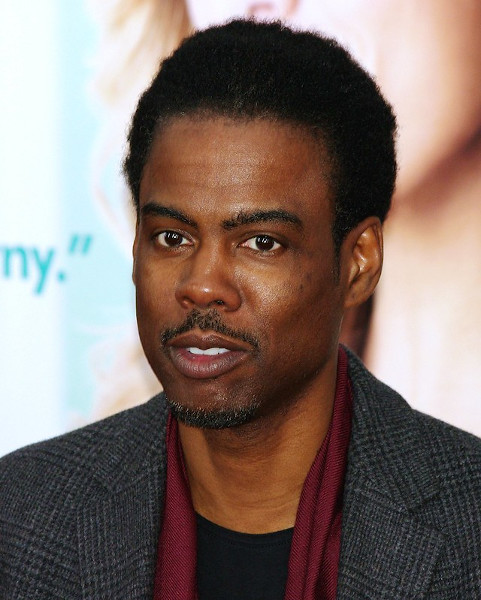Oscars Brouhaha: Will Smith Crossed the Line

In a touching moment, CODA won Best Picture at the 2022 Academy Awards ceremony. Troy Kotsur made history as only the second deaf actor to take a statuette home, and veteran Jane Campion made it seem as though a woman winning Best Director may no longer be a novelty. Yet, all anyone is talking about is … The Slap.
For Academy Awards producers, the fact that people are actually talking about the show may seem like a win after years of declining ratings, but Will Smith’s decision to slap comedian Chris Rock has ignited a social media storm that may do more harm than good. For those who somehow missed it, Rock joked that he was looking forward to seeing Smith’s wife – Jada Pinkett Smith – in GI Jane 2. Pinkett Smith is largely bald, at least in part due to effects of the autoimmune disease alopecia, and the GI Jane reference was meant to recall images of that film’s star, Demi Moore, with a fully shaved head. Smith apparently found the joke over the line, walked confidently on stage, and delivered a glancing blow to Rock’s head. He then returned to his seat where he angrily yelled, “Keep my wife’s name out of your (expletive deleted) mouth.”
Immediately, the masses took to Facebook, Twitter, and other socials to either condemn Smith’s use of violence or celebrate him as an ardent protector of family. Although predictable, I am saddened that discussions – at least those I have anecdotally encountered – have largely been predictably shallow.
One can endlessly debate whether Rock went too far or if Smith’s actions seem like that of an unhinged lunatic or a protective husband. What I haven’t seen is much talk about how the conversation might differ if the demographics of those involved in the altercation were changed. I believe that discussion is fundamental in an era defined by the #MeToo and #BlackLivesMatter movements. Like it or not, gender and race stereotypes play a significant role in the way human beings view and react to the world and, for many of us, the way we play those roles took shape long before we began to think about them critically. But it’s never too late.
Those I have seen defend Smith seem enamored with the idea that it is a man’s duty to violently “protect” his wife from even the most minor offense, a passing joke about physical appearance that one wouldn’t even get if they had missed a forgettable, 1997 action movie. The idea that so many Americans see this defense as reasonable speaks to the power of social programming. Most men of my age (54) who grew up in America, have been taught that women must be protected and that we must be the protectors … unless, of course, we are talking about things that could erode the broader power of our sex. No matter how many times we’ve been told that being “a man” means rescuing fragile females, we have refused to extend broad systemic protections such as equal access to pay and high-level jobs. The Oscar telecast was an interesting place to watch this play out because women within the film industry have complained about an uneven playing field for years. Remember that Jane Campion win I referenced? It marked only the third time a woman has been named Best Director.

So, while Will Smith played the role most straight men in America have been programmed for – Fierce Defender of “His” Woman – many applauded the performance. While this article could be seen as a harsh judgement against Smith, that’s not my intent. Stereotypes are insidious, and gender role programming begins at birth. I find it hard to condemn people for succumbing to incessant social pressures, as I’ve done it more than once, only to find myself regretting the behavior later. I can ask, however, that rather than get sucked into the sensationalism of a celebrity feud, we step back and think about why we believe the things we do about sex, race, and other demographic variables. If we believe that all human beings are equal – and I hope we can agree on that – it makes sense to examine our implicit biases and ask ourselves if they are allowing us to act morally and ethically.
When analyzing whether Smith – or Rock for that matter – was right or wrong, I encourage consideration of how the situation might have played out if (all other variables equal) it was Wanda Sykes who told the joke … or Amy Schumer … or Troy Kotsur. There is little doubt that, for many, the rules would change if it was a woman or disabled man who told the offensive joke. But it is important to remember that the basic scenario is unchanged: contentious comedian tells distasteful joke at a show where attendees are routinely roasted.
At no point was Jada Pinkett-Smith in physical danger. So, the idea that Smith was protecting his family, as he stated in his Oscar acceptance speech, doesn’t really fly. Rather, he was protecting his and, perhaps, his wife’s “honor,” and what is and is not honorable is most often defined by society, not individuals.
Even changing the demographics of the slapper could lead to different assessments. Do things change if it’s Bradley Cooper slapping Chris Rock? Almost certainly. It’s hard to imagine a scenario where that happens and the race of the two men doesn’t enter the discussion. How about Jada Pinkett-Smith slapping Wanda Sykes or Regina Hall?
Although people can be forgiven for getting sucked into the drama of this latest celebrity scandal, I hope they take a moment to dig deeper and ask why violence would ever be seen as reasonable retaliation to a nonviolent act. Then, we can go further and ask whether it’s time to more aggressively dismantle the gender and racial stereotypes that are clearly causing damage to our society. In short, I think we need to acknowledge that the way we feel about The Slap says as much about us as it does Will Smith and Chris Rock.
Author Bio
Forrest Hartman is Highbrow Magazine’s chief film critic.
For Highbrow Magazine
Image Sources:
--Techcrunch (Wikimedia, Creative Commons)
--David Shankbone (Flickr, Creative Commons)































































































































































































































































































































